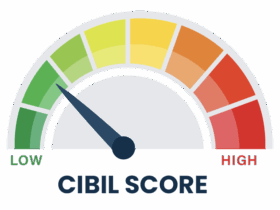In the fast-paced world of business, navigating the complexities of corporate taxation can be a daunting task. From compliance with ever-changing tax laws to maximizing tax efficiency, managing corporate taxes requires specialized knowledge and expertise. This is where a corporate tax accountant becomes an invaluable asset to businesses seeking financial excellence. In this article, we’ll explore the role of an accountant and how partnering with one can pave the way for success in today’s competitive business landscape.
Understanding the Role of a Tax Accountant
A tax accountant is a financial professional responsible for managing the tax affairs of a corporation or business entity. Their primary role involves ensuring compliance with tax laws and regulations while minimizing the organization’s tax liabilities. Corporate accountants possess in-depth knowledge of tax laws, accounting principles, and financial reporting requirements, enabling them to provide strategic tax planning and advisory services to their clients.
The Value of a Corporate Tax Accountant
A tax accountant is a professional who specializes in managing a company’s tax obligations. Their expertise lies in interpreting tax laws, preparing tax returns, and devising strategies to minimize tax liabilities. However, their value extends far beyond these tasks. They are strategic advisors who can contribute significantly to a company’s financial trajectory.
Strategic Tax Planning
One of the key responsibilities of a tax accountant is strategic tax planning. By analyzing the financial position and operations of the business, they develop tax strategies aimed at minimizing tax liabilities and maximizing tax efficiency. This involves identifying opportunities for tax deductions, credits, and incentives, as well as structuring transactions in a tax-efficient manner.
Through strategic tax planning, tax accountants help businesses optimize their tax position while ensuring compliance with applicable tax laws and regulations. By proactively planning and implementing tax-saving strategies, they can significantly impact the bottom line of the business and contribute to its financial success.
Strategic Decision-Making
The most significant ways a tax accountant contributes to financial excellence is by driving strategic decision-making. They have a comprehensive understanding of a company’s financial position and the tax implications of various business decisions.
Whether it’s evaluating the financial feasibility of a new business venture, assessing the tax impact of a potential merger or acquisition, or restructuring the company to optimize tax efficiency, a corporate tax accountant can provide valuable insights. These insights can guide decision-making, ensuring that every business move is financially sound and tax-efficient.
Compliance and Reporting
In addition to tax planning, tax accountants are responsible for ensuring compliance with tax filing and reporting requirements. They prepare and file various tax returns, including corporate income tax returns, sales tax returns, and payroll tax returns, accurately and on time. Moreover, they keep abreast of changes in tax laws and regulations to ensure that the business remains compliant with all applicable requirements.
By handling tax compliance matters, tax accountants help businesses avoid costly penalties, fines, and audits from tax authorities. Their attention to detail and expertise in tax regulations ensure that the business’s tax affairs are in order, providing peace of mind to stakeholders and allowing the business to focus on its core operations.
Maximizing Tax Efficiency
One of the key benefits of partnering with a tax accountant is the ability to maximize tax efficiency. By leveraging their expertise and knowledge of tax laws, tax accountants help businesses identify opportunities for tax savings and optimization. This may include utilizing tax deductions, credits, and incentives, as well as structuring transactions in a tax-efficient manner.
Moreover, corporate tax accountants stay abreast of changes in tax laws and regulations, ensuring that their clients remain compliant with evolving tax requirements. By proactively planning and strategizing, tax accountants help businesses minimize their tax liabilities while maximizing their after-tax profits, contributing to financial excellence and long-term success.
Tax Advisory and Representation
In addition to tax planning and compliance, tax accountants provide tax advisory and representation services to their clients. They offer expert advice on a wide range of tax-related matters, including mergers and acquisitions, business restructuring, and international taxation. Moreover, they represent their clients in dealings with tax authorities, such as responding to inquiries, audits, and appeals.
Having an experienced tax accountant on your side can provide invaluable guidance and support in navigating complex tax issues and resolving disputes with tax authorities. Their expertise and advocacy ensure that the business’s interests are protected, allowing it to focus on achieving its strategic objectives and driving growth.
Conclusion
In conclusion, partnering with a tax accountant is essential for businesses seeking financial excellence in today’s competitive environment. From strategic tax planning to compliance and representation, corporate tax accountants play a vital role in managing the tax affairs of businesses and optimizing their tax position. By leveraging their expertise and guidance, businesses can minimize tax liabilities, maximize tax efficiency, and pave the way for long-term success and prosperity. Success truly starts with a partnership with a knowledgeable and experienced tax accountant who can navigate the complexities of corporate taxation and help businesses achieve their financial goals.







